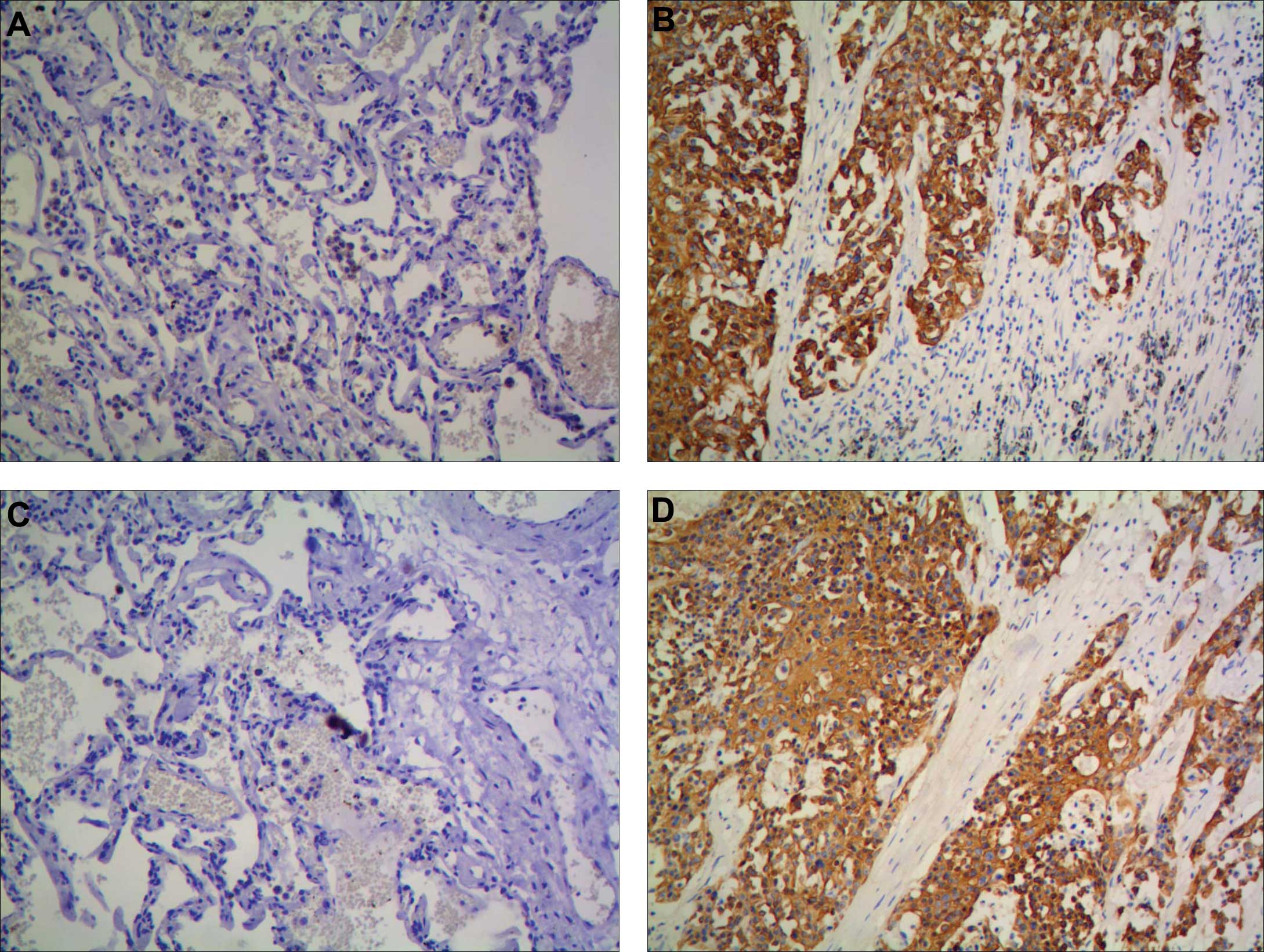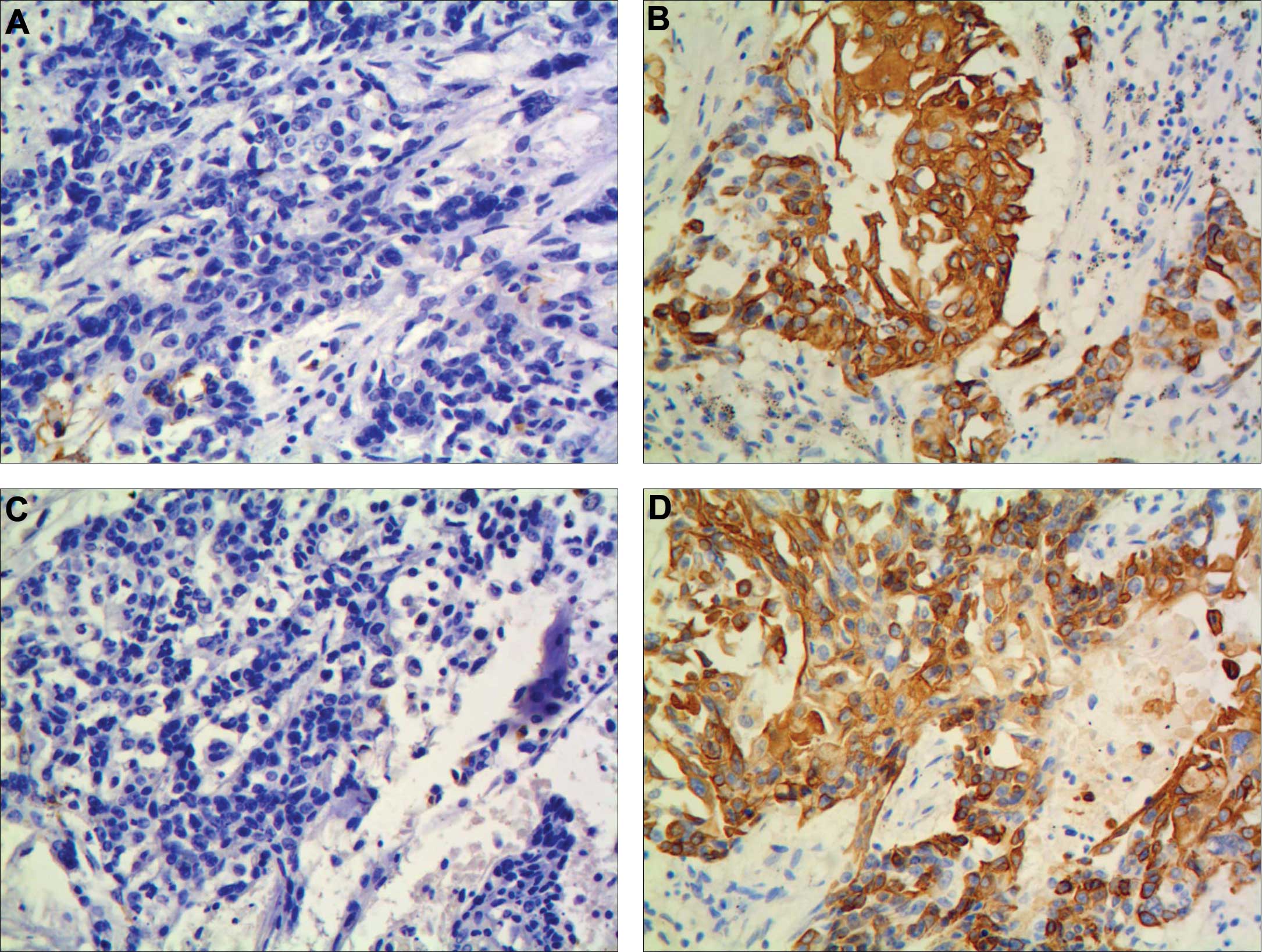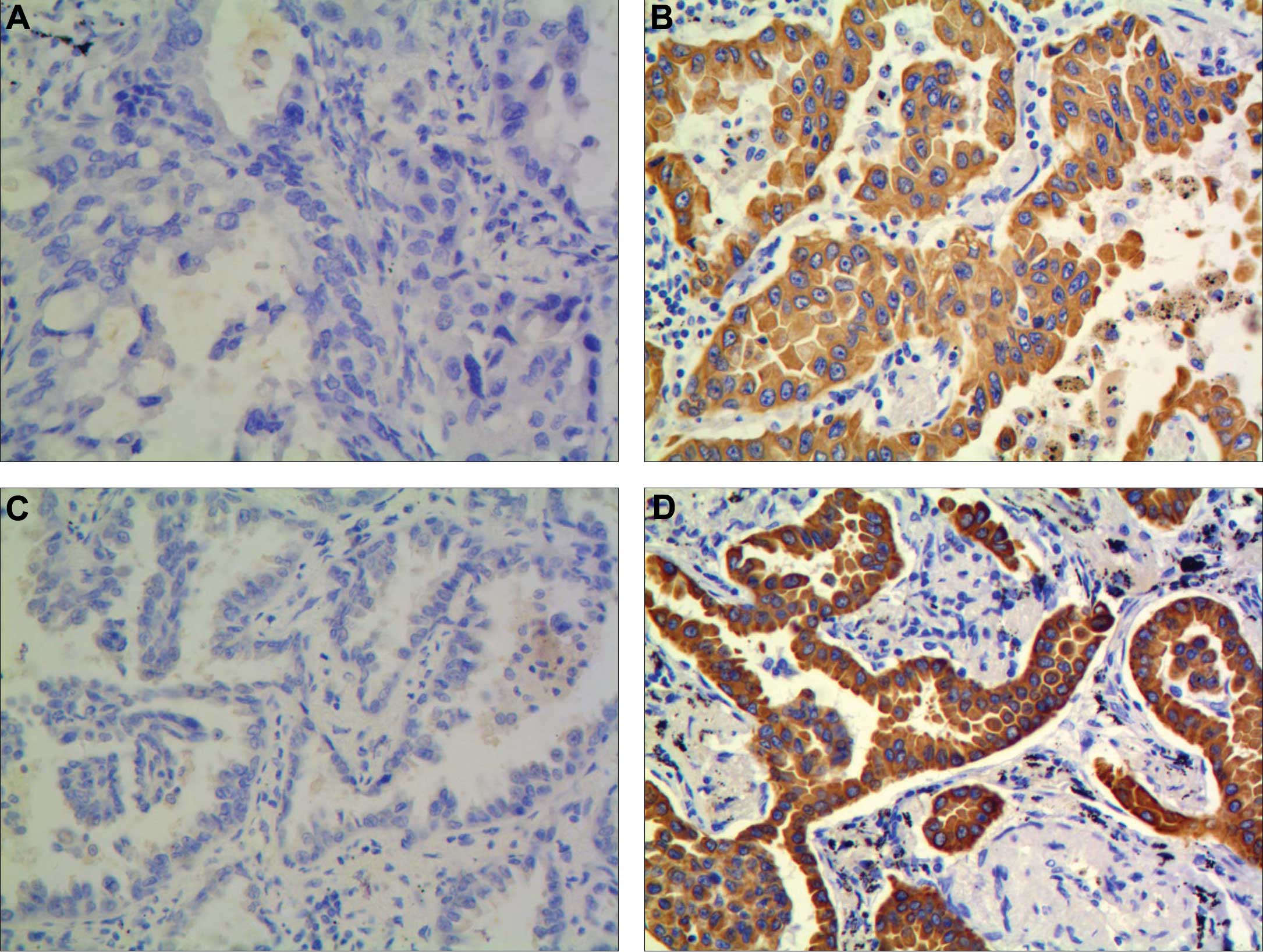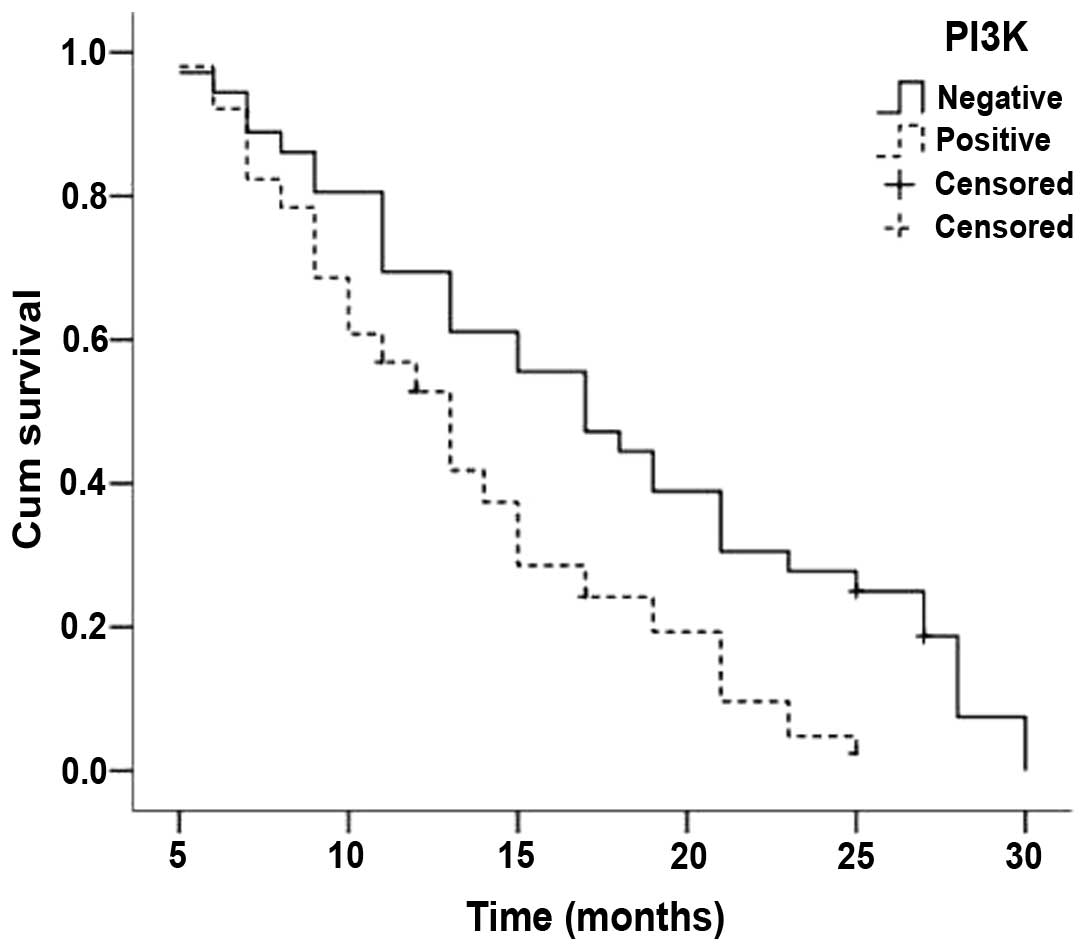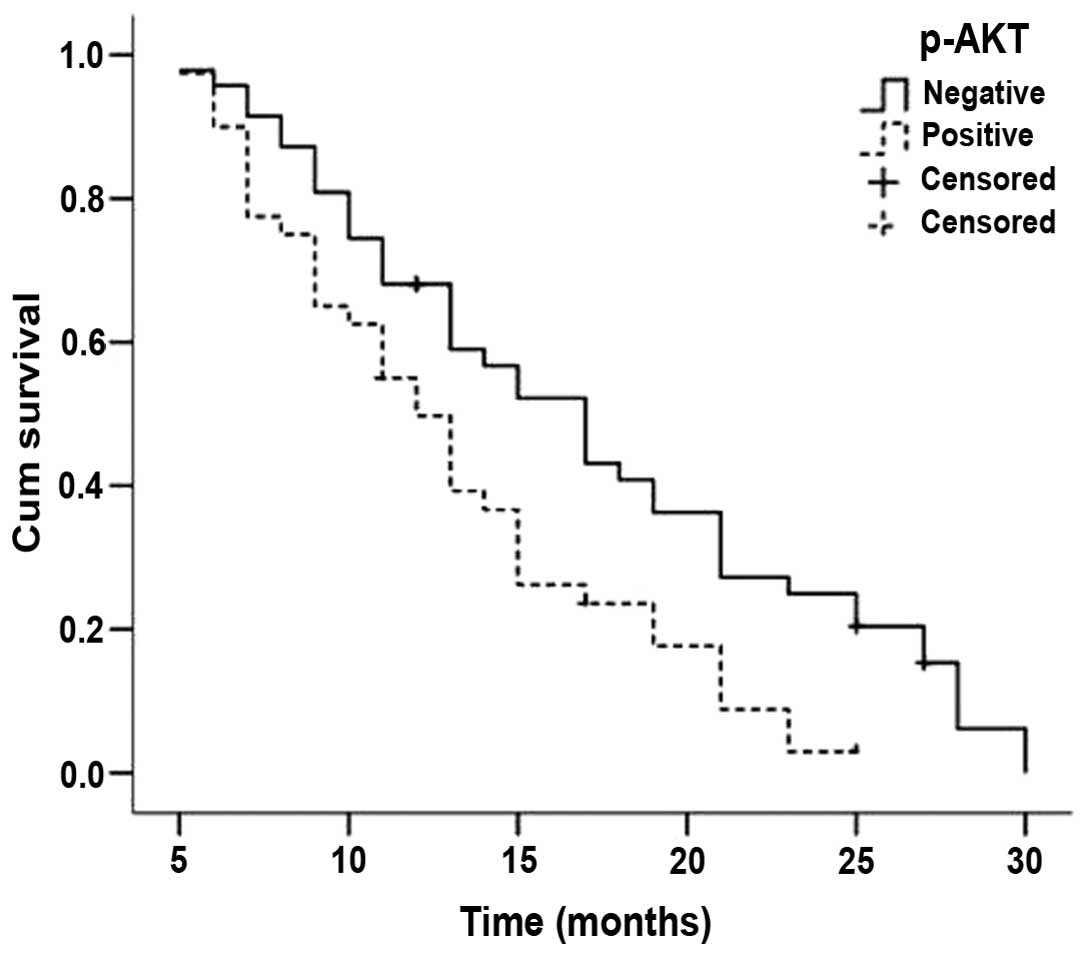|
1
|
Molina JR, Yang P, Cassivi SD, Schild SE
and Adjei AA: Non-small cell lung cancer: epidemiology, risk
factors, treatment, and survivorship. Mayo Clin Proc. 83:584–594.
2008.
|
|
2
|
Jemal A, Bray F, Center MM, Ferlay J, Ward
E and Forman D: Global cancer statistics. CA Cancer J Clin.
61:69–90. 2011.
|
|
3
|
Cantrell DA: Phosphoinositide 3-kinase
signaling pathways. J Cell Sci. 114:1439–1445. 2001.
|
|
4
|
Hennessy BT, Smith DL, Ram PT, Lu Y and
Mills GB: Exploiting the PI3K/AKT pathway for cancer drug
discovery. Nat Rev Drug Discov. 4:988–1004. 2005.
|
|
5
|
Sunayama J, Sato A, Matsuda K, et al: Dual
blocking of mTor and PI3K elicits a prodifferentiation effect on
glioblastoma stem-like cells. Neuro Oncol. 12:1205–1219. 2010.
|
|
6
|
Zhou J, Wulfkuhle J, Zhang H, et al:
Activation of the PTEN/mTOR/STAT3 pathway in breast cancer
stem-like cells is required for viability and maintenance. Proc
Natl Acad Sci USA. 104:16158–16163. 2007.
|
|
7
|
Missiaglia E, Dalai I, Barbi S, et al:
Pancreatic endocrine tumors: expression profiling evidences a role
for AKT-mTOR pathway. J Clin Oncol. 28:245–255. 2010.
|
|
8
|
Al-Saad S, Donnem T, Al-Shibli K, Persson
M, Bremnes RM and Busund LT: Diverse prognostic roles of AKT
isoforms, PTEN and PI3K in tumor epithelial cells and stromal
compartment in non-small cell lung cancer. Anticancer Res.
29:4175–4183. 2009.
|
|
9
|
David O, Jett J, LeBeau H, et al:
Phospho-Akt over expression in non-small cell lung cancer confers
significant stage-independent survival disadvantage. Clin Cancer
Res. 10:6865–6871. 2004.
|
|
10
|
Tang JM, He QY, Guo RX and Chang XJ:
Phosphorylated Akt over expression and loss of PTEN expression in
non-small cell lung cancer confers poor prognosis. Lung Cancer.
51:181–191. 2006.
|
|
11
|
Tsao AS, McDonnell T, Lam S, et al:
Increased phospho-AKT (Ser (473)) expression in bronchial
dysplasia: implications for lung cancer prevention studies. Cancer
Epidemiol Biomarkers Prev. 12:660–664. 2003.
|
|
12
|
Tsurutani J, Fukuoka J, Tsurutani H, et
al: Evaluation of two phosphorylation sites improves the prognostic
significance of Akt activation in non-small cell lung cancer
tumors. J Clin Oncol. 24:306–314. 2006.
|
|
13
|
Shah A, Swain WA, Richardson D, et al:
Phospho-Akt expression is associated with a favorable outcome in
non-small cell lung cancer. Clin Cancer Res. 11:2930–2936.
2005.
|
|
14
|
Groome PA, Bolejack V, Crowley JJ, et al:
IASLC International Staging Committee; Cancer Research and
Biostatistics; Observers to the Committee; Participating
Institutions: The IASLC Lung Cancer Staging Project: validation of
the proposals for revision of the T, N, and M descriptors and
consequent stage groupings in the forthcoming (seventh) edition of
the TNM classification of malignant tumors. J Thorac Oncol.
2:694–705. 2007.
|
|
15
|
Shaw RJ and Cantley LC: Ras, PI(3)K and
mTOR signalling controls tumor cell growth. Nature. 441:424–430.
2006.
|
|
16
|
Pisick E, Jagadeesh S and Salgia R:
Receptor tyrosine kinases and inhibitors in lung cancer.
ScientificWorldJournal. 4:589–604. 2004.
|
|
17
|
Brunet A, Bonni A, Zigmond MJ, et al: Akt
promotes cell survival by phosphorylating and inhibiting a Forkhead
transcription factor. Cell. 96:857–868. 1999.
|
|
18
|
Henshall DC, Araki T, Schindler CK, et al:
Activation of bcl-2 associated death protein and counter-response
of Akt within cell populations during seizure-induced neuronal
death. J Neurosci. 22:8458–8465. 2002.
|
|
19
|
Duguay D and deBlois D: Differential
regulation of Akt, caspases and MAP kinases underlies smooth muscle
cell apoptosis during aortic remodelling in SHR treated with
amlodipine. Br J Pharmacol. 151:1315–1323. 2007.
|
|
20
|
Diehl JA, Cheng M, Roussel MF and Sherr
CJ: Glycogen synthase kinase-3b regulates cyclin D1 proteolysis and
subcellular localization. Genes Dev. 12:3499–3511. 1998.
|
|
21
|
Sunters A, Madureira PA, Pomeranz KM,
Aubert M, Brosens JJ, Cook SJ, et al: Paclitaxel-induced nuclear
translocation of FOXO3a in breast cancer cells is mediated by c-Jun
NH2-terminal kinase and Akt. Cancer Res. 66:212–220. 2006.
|
|
22
|
Wang L, Cao XX, Chen Q, Zhu TF, Zhu HG and
Zheng L: DIXDC1 targets p21 and cyclin D1 via PI3K pathway
activation to promote colon cancer cell proliferation. Cancer Sci.
100:1801–1808. 2009.
|
|
23
|
Hahn-Windgassen A, Nogueira V, Chen CC,
Skeen JE, Sonenberg N and Hay N: Akt activates mTOR by regulating
cellular ATP and AMPK activity. J Biol Chem. 280:32081–32089.
2005.
|
|
24
|
Zhang R, Xu Y, Ekman N, et al: Etk/Bmx
transactivates vascular endothelial growth factor 2 and recruits
phosphatidylinositol 3-kinase to mediate the tumor necrosis
factor-induced angiogenic pathway. J Biol Chem. 278:51267–51276.
2003.
|
|
25
|
Balsara BR, Pei J, Mitsuuchi Y, et al:
Frequent activation of Akt in non-small cell lung carcinomas and
preneoplastic bronchial lesions. Carcinogenesis. 25:2053–2059.
2004.
|















